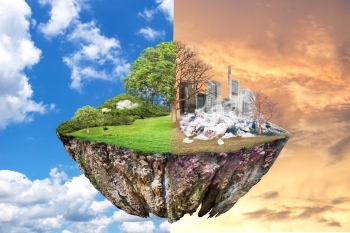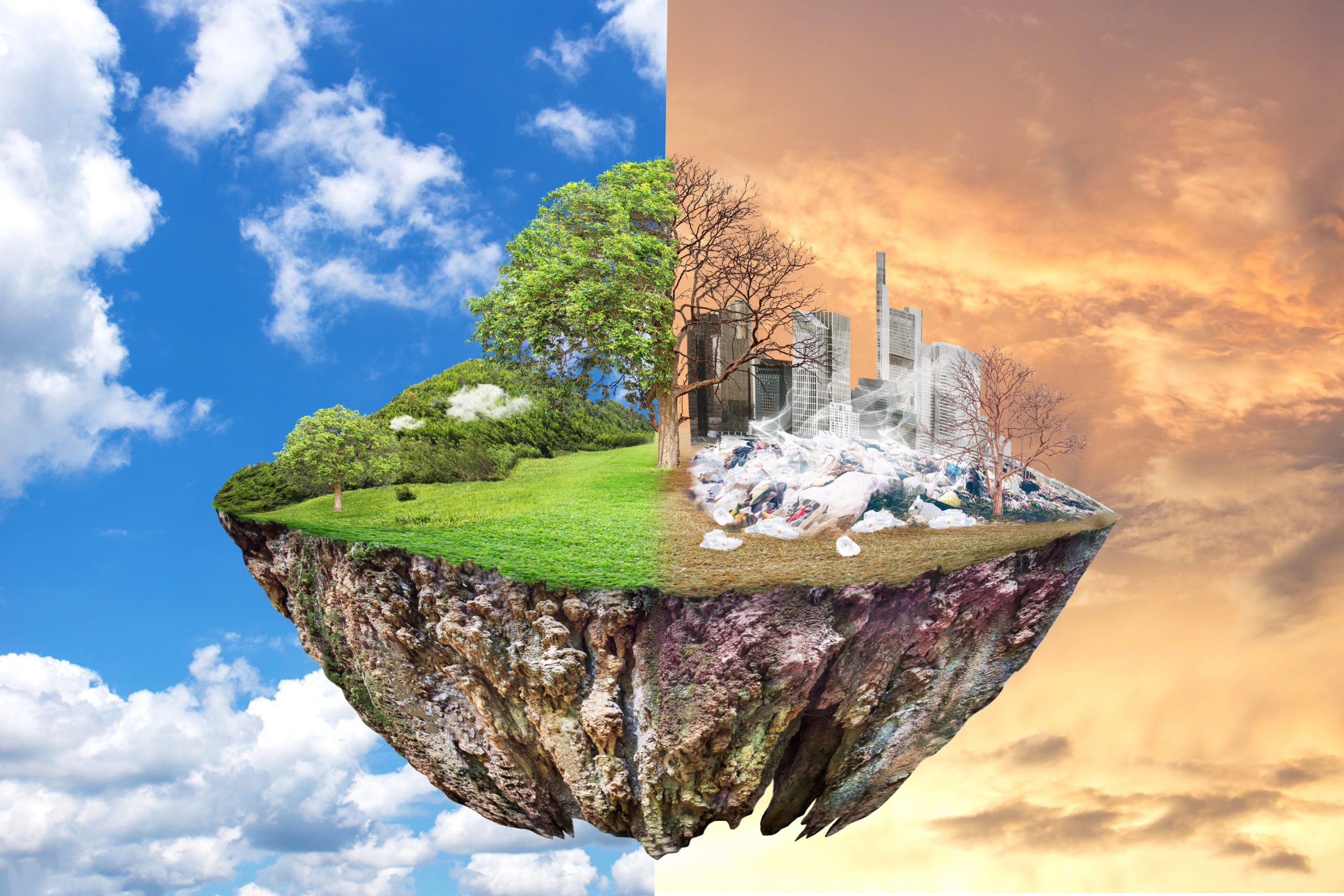
.png) Aarti
Aarti

The writing on the wall is crystal clear that climate change needs to be addressed in the right earnest, rather seriously. Yes, the latest report from the Intergovernmental Panel on Climate Change (IPCC) has issued the most serious warning. The assessment based on inputs from scientists in 67 countries cautions that the world will experience multiple climate hazards even if global warming is contained to 1.5 degrees Celsius in the coming two decades. Any further rise in temperature, even if temporary, will lead to very serious consequences, some of them irreversible. Although the Paris Agreement of 2015 had pledged to limit global warming to 1.5°C above pre-industrial levels, the cause for concern is that the world has already warmed by 1.1°C since then.
Studies have shown that the difference between 1.5 and 2 degrees Celsius can mean the submersion of small island states, the death of coral reefs, extreme heat waves, flooding and wildfires, and pervasive crop failure apart from many premature deaths.
The world has made progress on emissions reduction over the last decade and growth in greenhouse gas (GHG) emissions slowed to 1.3 percent per year in the 2010s, compared to 2.1 percent in the 2000s. But with global emissions remaining at record levels, the world is at risk for runaway climate change.
GHG, which trap the heat in the atmosphere, has led to the melting of icecaps/glaciers, compression of weeks and months of rainfall into days and hours followed by prolonged periods of drought. Reports indicate that as oceans heat up, the change in temperature can destabilise air and water currents. Beyond typhoons, hurricanes and tornadoes, the monsoon itself may become erratic. Apart from losses in agriculture, increase in the prices of food, it can worsen hunger. An abrupt change in the monsoon could precipitate a major crisis, triggering more frequent droughts as well as greater flooding.
Extreme weather events triggered by climate change costs about $320 billion globally every year in economic losses. Climate change can adversely impact human health. It can increase malnutrition and related health disorders including child stunting. Besides vector-borne diseases, diarrheal infections are likely to spread into areas where colder temperatures had previously limited transmission. While heat waves are likely to result in a very substantial rise in mortality and death, injuries from extreme weather events are likely to increase.
In so far India is concerned, with more than 17 percent of the global population, it has contributed only about 4 percent of the global cumulative greenhouse gas emissions between 1850 and 2019. But we are already experiencing a warming climate. A decline in monsoon rainfall since the 1950s has already been observed. The frequency of heavy rainfall events has also increased. The Indian Ocean is warming at a higher rate than other oceans, with scientists warning that India will witness increased heat waves, rainfall and flooding, which will be the irreversible effects of climate change.
All efforts need to be undertaken to keep global temperatures from rising 1.5 degrees Celsius, cutting emissions of all GHGs roughly by half by the 2030s and achieving net-zero carbon dioxide emissions in the 2050s. Experts are of the view that removal of fossil fuel subsidies and introduction of carbon pricing would direct more investment toward renewable solutions. But it needs proper planning and implementation.
According to a World Bank study, climate-related impacts on water resources can undermine the two dominant forms of power generation in India - hydropower and thermal power generation - both of which depend on adequate water supplies to function effectively. To function at full efficiency, thermal power plants need a constant supply of fresh cool water to maintain their cooling systems.
There is an imperative need for increased use of renewable energy including improvements in energy efficiency to reduce urban emissions. At a macro level, various policy initiatives in some countries have led to an increased use of renewable energy. It is said that the average cost of solar energy and wind power are getting cheaper so is the cost of lithium-ion batteries, used in electric vehicles.
That India has pledged at becoming carbon neutral or not adding to the amount of greenhouse gases in the atmosphere by 2070 is laudable. Notably by 2030, India’s non-fossil energy capacity is to reach 500 GW and 50 per cent of energy requirements is to be met with renewable energy. Total projected carbon emissions will be reduced by one billion tonnes from now to 2030 as also the reduction in carbon intensity to less than 45 per cent by 2030.
With many parts of India experiencing water stress, apart from mandatory water harvesting, improvements in irrigation systems needs to be addressed because satisfying future demand for water will be a major challenge.
It is also being suggested that growing crops within forests and managing livestock more sustainably would help improve land productivity and resilience to climate impacts such as heat or drought. This is where experts in the field need to work hand in hand with government agencies to translate the initiative into reality.
Studies that analysed commuter trends and labour market data during the COVID-19 lockdowns found working from home can reduce carbon dioxide (CO2) footprint for people who travel by cars if their journey to work is greater than about 6 kilometres. Notably, worldwide, if everybody were to work from home for just a day a week, it would save 1 per cent of global oil consumption for road passenger transport per year and result in an annual decline of 24 million tonnes of global CO2 emissions. When around one-third of the global population was in complete lockdown, it triggered a fall of 50 percent to 75 percent in road traffic around the world. Not only fossil fuels use witnessed an unprecedented fall but air pollution declined drastically.
As reports suggest, globally, if 10 percent of bus trips were to be made by car instead, this would add some 700,000 barrels a day to fuel demand for cars – roughly 3 percent of the total amount of oil used for passenger road transport in 2019. So, public transport would be a better option.
The latest IPCC Report has praised Kolkata, which is being cited as an “illustrative case study” to showcase how integrated action can combat climate change. “There are as many as 12 different modes of public transportation, each with its own system structure and offer means of mobility to the city’s 14 million citizens. Most of the public transport modes in the city are shared mobility options, ranging from a few people in a rickshaw to hundreds in metro or suburban trains”. It goes on to say that actions on several public transport modes contributed positively in bringing down the trend of greenhouse gas emissions per unit of GDP to half in one decade, “with potential for further reduction”.
Using public transport instead of a car or a train in lieu of a flight, adopting energy-efficient lighting and not forgetting to turn off the light or fan/air conditioned when leaving the room and conserving water. As individuals, these are the many but small ways each one of us can contribute to help fight climate change.